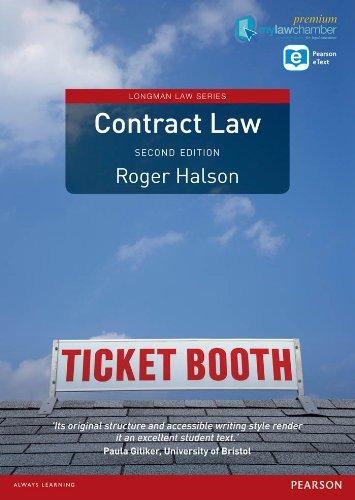Question
QUESTION 6 Monica Lewis just graduated high school and to celebrate, she asked her older brother Thomas, who is twenty-two, to book her a large
QUESTION 6
Monica Lewis just graduated high school and to celebrate, she asked her older brother Thomas, who is twenty-two, to book her a large suite at an upscale hotel in the city for a graduation celebration for she and her friends. Thomas, who booked the suite, also planned to stay for the celebration. On the evening of the celebration, fifteen of Monica's high school friends were present in the suite. Thomas was also present. The teens were drinking, playing loud music, and dancing. The alcohol was purchased by Thomas prior to the teens' arrival. After receiving a noise complaint at the front desk, a hotel employee went to Monica's room to advise them to keep the noise down and found a group of high school students with alcohol in the room. The clerk summoned the manager, who advised Thomas and Monica that the whole group was being evicted. Thomas and Monica later filed a lawsuit in state court against the hotel claiming the hotel violated the law. Their lawsuit will likely:
| a. | Succeed because hotels do not have the right to evict registered guests under any circumstances. | |
| b. | Succeed because the hotel was discriminating against Thomas and Monica on the basis of age. | |
| c. | Fail because underage drinking was taking place in the hotel suite, making the eviction lawful. | |
| d. | Fail because this type of a complaint should have been filed with the state attorney general's office as the state courts do not have jurisdiction. |
QUESTION 7
Sarah Williams, travelling for business, stopped at hotel in the early evening planning to stay overnight. Ms. Williams had stayed at this hotel in the past. During her last stay, she presented a stolen credit card to the front desk for payment. Only after Ms. Williams checked out and the credit card company refused payment, did the hotel realize that the credit card was not Ms. Williams. So, when Ms. Williams presented herself to the front desk to check in during the current business trip, the clerk at the front desk refused to provide her overnight accommodations. Ms. Williams was furious and intends to sue. Her suit will likely:
| a. | Succeed because hotels cannot refuse accommodations to a potential guest for any reason. | |
| b. | Fail because hotels have unlimited rights under the law to refuse accommodations to potential guests. | |
| c. | Succeed because a hotel cannot refuse a guest when they are checking in at night. | |
| d. | Fail because hotels have a limited right to refuse guests who have previously defrauded them. |
QUESTION 8
Under the law, a hotel guest
| a. | Is considered a tenant and hotels must comply with eviction procedures laid out in state laws before removing any guests. | |
| b. | Is typically not considered a tenant under the law and may be removed without regard to laws governing eviction. | |
| c. | Is only considered a tenant if they overstay their reservation. | |
| d. | Is never considered a tenant. |
QUESTION 9
Under the law, hotels are considered
| a. | Places of public accommodation | |
| b. | Places of accessibility. | |
| c. | Places of administrative accommodation. | |
| d. | Places of private accommodation. |
QUESTION 10
Jonathan Alves, who is visually impaired, arrived at a hotel where he had made reservations intending to check in. Mr. Alves was accompanied by his service dog, Milo. Upon arriving at the front desk to provide the clerk with his information and get his room key, the clerk informed him that the hotel had a "no pets" policy and could not honor his reservation. If Mr. Alves decides to sue the hotel for failing to allow him to stay, his suit will likely:
| a. | Fail because hotels have the right to refuse guests travelling with animals. | |
| b. | Succeed because refusing accommodations to a visually impaired guest with a trained guide dog violates federal and state laws that protect individuals with disabilities. | |
| c. | Succeed because he had a reservation and once a reservation is made, hotels have no right to dishonor that reservation. | |
| d. | Fail because hotels have the right to refuse to accommodate guests for any reason. |
Step by Step Solution
There are 3 Steps involved in it
Step: 1

Get Instant Access to Expert-Tailored Solutions
See step-by-step solutions with expert insights and AI powered tools for academic success
Step: 2

Step: 3

Ace Your Homework with AI
Get the answers you need in no time with our AI-driven, step-by-step assistance
Get Started


